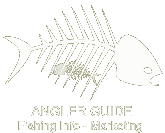
|
Navigation
Fishing Reports
Outdoor News
- Business
- Great Lakes
- Great Plains
- Northeast
- Northwest
- Rocky Mountains
- Southeast
- Southwest
- Technology
- Trophy Catches

|

|
|
|
|
| Wisconsin Outdoor News |

|
|
| Fall brings composting opportunities |
Location: Wisconsin
|
|
 |
|
MADISON ı Fall is an excellent time of year to start composting, or for those who already compost, to think about improvements. State air quality and fire control rules restrict the burning of yard waste in Wisconsin, and a growing number of communities have made local rules that may restrict or completely prohibit burning of yard waste because of the air pollution and fire hazard created. While yard waste is prohibited from landfills, and many communities provide yard waste pickup and community composting sites, home composting is an environmentally friendly alternative. Leaves, small brush, grass clippings, and other organic material can be easily managed at home through composting. Best of all, compost will be produced and available right on site for use in your yard and garden. Here are a few pointers: - Add both brown material like leaves and sticks, and green material like grass clippings and vegetable cuttings, in alternating layers, starting with brown material on the bottom. This properly distributes the nitrogen-rich green materials among the carbon-rich and more porous brown materials to ensure your compost has airflow to support growth of desirable microbes that decompose the waste in an inoffensive way.
- The microbes also need moisture. To keep the composting process working, water may need to be added, especially for open piles and uncovered bins during dry weather. However, the desirable air-breathing microbes canıt grow in saturated conditions, either. To check for the proper moisture level, you should be able to squeeze about one drop of liquid out of a small handful of compost.
- Generally, green material makes the composting process faster, but faster is not necessarily better. Faster decomposition requires more air and more attention to keep the compost from being a nuisance. Even with green material at only five percent of the mixture, layering green and brown material and some weekly turning becomes more important.
- Recycling food waste like vegetable trimmings, tea bags, coffee grounds and eggshells is best done in a covered bin, again layering with brown material. Worms, especially red worms, in bins are another way to recycle food waste and this efficient method is also gaining popularity. Compost and worm bins can be homemade or commercially manufactured. Inquire about compost bins with your local retailers, or search the Internet for ıcompost binsı to find instructions for making your own bin and to see a wide variety of manufactured bins.
- A foul odor indicates the compost pile is not getting enough air. This might be from too much moisture, too much green material in the mixture or materials getting compacted together over time. Turning the compost helps maintain good air circulation throughout. Alternating layers of brown and green materials also helps maintain good airflow, since the brown materials take longer to break down.
- Locate your composting piles or bins about 10 feet or more away from structures, but within reach of a garden hose. This helps keep interested animals at a distance, allows easy watering of the compost and is also good fire safety. While compost fires are rare, compost piles do generate heat, and under certain conditions, the material may smolder or even catch fire.
- Composting should also be located on a dirt surface that drains well and the site relocated every few years. Vegetation planted around the composting area may be aesthetically pleasing and will use up any nutrients that get rinsed out. Also, be sure to periodically inspect your composting bin or pile and the ground around it to be sure animals are not making a home in your compost.
- Local ordinances may apply to home composting. In some cases, composting may be located only in a backyard or at a minimum distance from neighboring properties, and a bin may be required for composting food wastes. Even if not specifically required by your local government, DNR recommends food waste composting only in a bin capable of preventing access by animals that may scavenge in your area.
More information on composting and recycling is available on the DNR Web site, or contact your municipal recycling staff, county extension agent or DNR regional recycling specialist. More information can also be found on the UW-Extension Web site at: [www3.uwm.edu/Dept/shwec] and search publications for ıcompostingı. Additional tips on environmentally friendly fall activities and actions can also be found on the DNR Web site.
News Source: Wisconsin DNR -
Oct. 17, 2007
«Back | News Home

|
|
© 2024 AnglerGuide.com. All rights reserved.
|
|

